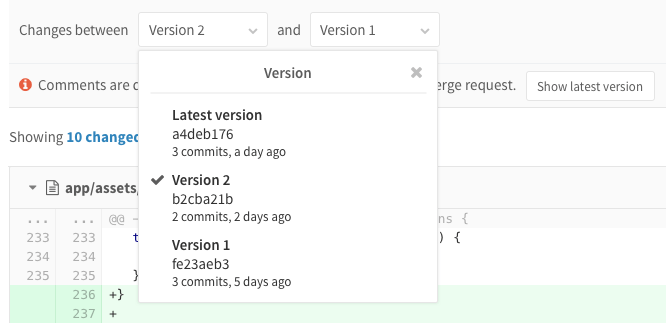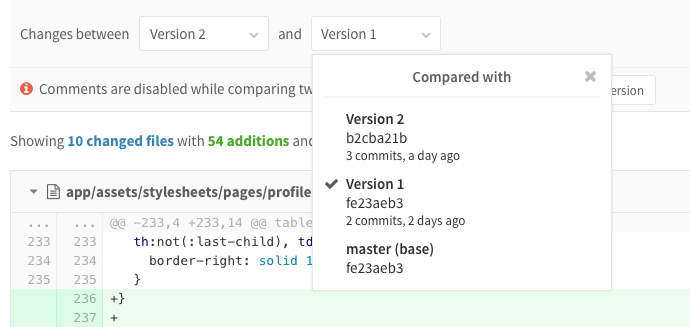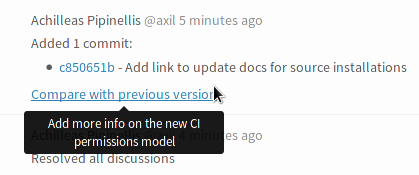Merge requests versions
Every time you push to a branch that is tied to a merge request, a new version of merge request diff is created. When you visit a merge request that contains more than one pushes, you can select and compare the versions of those merge request diffs.
Selecting a version
By default, the latest version of changes is shown. However, you can select an older one from version dropdown.
Merge request versions are based on push not on commit. So, if you pushed 5 commits in a single push, it will be a single option in the dropdown. If you pushed 5 times, that will count for 5 options.
You can also compare the merge request version with an older one to see what has changed since then.
Comments are disabled while viewing outdated merge versions or comparing to versions other than base.
Every time you push new changes to the branch, a link to compare the last changes appears as a system note.
Find the merge request that introduced a change
Introduced in GitLab 10.5.
When viewing the commit details page, GitLab will link to the merge request (or merge requests, if it's in more than one) containing that commit.
This only applies to commits that are in the most recent version of a merge request - if a commit was in a merge request, then rebased out of that merge request, they will not be linked.
HEAD comparison mode for Merge Requests
Introduced in GitLab 12.10.
Merge Requests, particularly the Changes tab, is where source code is reviewed and discussed. In circumstances where the target branch was merged into the source branch of the merge request, the changes in the source and target branch can be shown mixed together making it hard to understand which changes are being added and which already exist in the target branch.
In GitLab 12.10, we added a comparison mode, which shows a diff calculated by simulating how it would look like once merged - a more accurate representation of the changes rather than using the base of the two branches. The new mode is available from the comparison target drop down by selecting master (HEAD). In the future it will replace the current default comparison.




